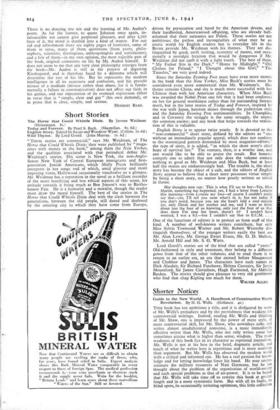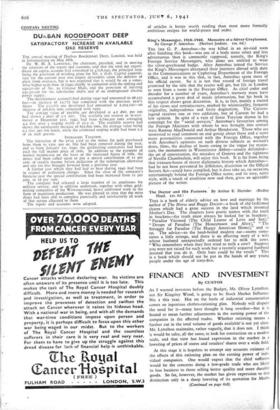Shorter Notices
Tilts book has too ambitious a title, and it is disfigured by some of Mr. Wells's prejudices and by the peevishness that weakens his controversial writings. Indeed, reading Mr. Wells and thinking of Mr. Shaw, one is impressed by the power of mere style, of mere controversial skill, for Mr. Shaw, who nowadays _talks and writes almost unadulterated nonsense, is a more immediately effective writer than Mr. Wells, who not only writes sense but sometimes attains what is higher than sense, wisdom. The main weakness of this book lies in its character as reprinted journalism. Mr. Wells is not at his best in the brief, dogmatic article, and much of what he writes here is repetitious and is more assertion than argument. But Mr. Wells has observed the modern world with a critical and informed eye. He has a real passion for know- ledge and for letting knowledge force his hand. He may under- estimate the military resources of Nazi Germany, but he has thought about the problem of the organisation of world-society and such special problems as that of air-power. It is to be hoped that Mr. Wells will take time off to rewrite this book at greater length and in a more systematic form. But with all its faults, its blind spots, its occasionally irritating optimism, this little collection
of articles is better worth reading than most more formally ambitious recipes for world-peace and order.



























 Previous page
Previous page